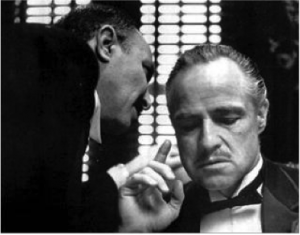Is Your Banker Your Partner or an Order-Taker?
Life is about building relationships. Indeed, we all have a group of important people in our lives – be it siblings, spouses, or friends – who “make our world work.” They know all there is to know about us, are integral to our well-being, and we cannot imagine life without them.
The same can be said for business relationships and their role in achieving entrepreneurial success. I am an advocate of cultivating relationships with subject matter experts (SME) to build a strong team of advisors. This is a key to pushing your business from mere survival to a prosperous and thriving enterprise.
An absolute key professional to have on your advisory team is a banker, and establishing a good relationship with them is essential. But with so many bankers to choose from, how do you know which one is right for you and your business? Moreover, what does a great banking relationship provide you in terms of advising you about business strategy?
To find the answers to these important questions, I spoke with William “Bill” Kirschner, Senior Vice President and Senior Commercial Banking Manager of Colorado Business Bank – Littleton. He has been a banker for 17 years, and offered some great advice on how to choose, the best banker for your business needs.
Bill first shared with me the difference between a what you might perceive to be a good banking relationship and a great banking relationship that is looking out for your best interests. Most good banking relationships are merely “plain vanilla” that provides an exchange of basic information, such as obtaining a line of credit, providing a business checking account, or even wire transfer and internet services. Practically any banker in the country can provide these basic services to practically any customer.
A “great” banking relationship, however, is built upon mutual trust and a sharing of intimate knowledge of your business with the banker. To serve your business well, the banker needs to know and understand, the “nuts and bolts” of your operation. In this way, they can provide much more than the basic, “plain vanilla” banking services. A banker armed with an intimate knowledge of you and your business adds value by helping you optimize your financial outcomes.
This means that when you are considering a new banker, you need to take the time to interview the banker. Furthermore, the interview should be about YOU. The banker should ask questions about how and where you do business and, more importantly, your vision for the future of your business and your family.
You should get to know your banker too. Selecting a new banker can be like hiring a new employee. The initial meeting can be like an interview, and you will want to ask the following questions:
- How long have you been with your bank?
- Do you bank with any other businesses like mine?
- Does your bank like customers in my line of a business?
If the response to question one is fewer than five years, ask them why they moved. Great bankers usually stay put for at least five years. Great bankers also attract better opportunities, so don’t be afraid to ask why they changed banks.
Bill shared that longevity within a bank is important because someone “new” may be less knowledgeable about the bank’s internal processes, capabilities, and deal appetite. Not only will knowing the banker’s work history tell you a lot about their style and work ethic, it can also be a signal that you’ll be short-changed if they don’t know everything the bank can do for you.
 A banker with long tenure has seen it all – the good, the bad, and the ugly. They have seen and celebrated with their client’s successes, and were there to embrace the failures as well. By earning these battle scars, they are likely to have learned to recognize land-mines and booby-traps and can help you avoid triggering unseen or unanticipated problems. Great bankers can also recognize when you and your business have outgrown a service or relationship and will help you find providers who can help you move to the next level.
A banker with long tenure has seen it all – the good, the bad, and the ugly. They have seen and celebrated with their client’s successes, and were there to embrace the failures as well. By earning these battle scars, they are likely to have learned to recognize land-mines and booby-traps and can help you avoid triggering unseen or unanticipated problems. Great bankers can also recognize when you and your business have outgrown a service or relationship and will help you find providers who can help you move to the next level.
By asking about the banker’s experience helping businesses like yours, you’ll learn if the banker understands your industry and the many subtle financial nuances you face as the business owner. A great banker might have 15 years of experience serving church-sponsored non-profits, but their experience might not translate to your budding marijuana grow business. The banker may know lots about asset-based lending but that knowledge may not translate to an easy acceptance of the assets you own for use as collateral.
Once you have chosen a banker, maintaining a solid relationship with them is a boon to your interests. The more they know about your business, the better they will be able to guide your financial decisions. Be sure you engage in regular dialogue with your banker, so they are abreast of organizational developments. Invite them to several management meetings or to a networking event you may be sponsoring Ask them to speak at one of your industry events. As you build a history together, their perspective will sharpen in terms of how to make the best financial decisions for your business and when to make them.
This includes decisions regarding business sales or transitions. If the time comes for either of these to happen for you, a banker who has been with you for an extended period will be keenly aware of your financial status and know what steps to take to secure the most desirable financial situation for you as the seller. In cases of business transition within families for example, the banker will likely already have a relationship with the incumbents and an intimate knowledge of your business, which can make the process smoother.
Overall, a g ood banker should be your advocate and a friend. With an intimate knowledge of your business and solid banking experience, they can promote and advocate for you within the bank to help you get the best that the bank has to offer. In being an advocate, they should also be able to refer you to a reliable network of other trusted advisors, such as valuation experts, insurance brokers, or certified public accountants, who can also support you.
ood banker should be your advocate and a friend. With an intimate knowledge of your business and solid banking experience, they can promote and advocate for you within the bank to help you get the best that the bank has to offer. In being an advocate, they should also be able to refer you to a reliable network of other trusted advisors, such as valuation experts, insurance brokers, or certified public accountants, who can also support you.
If you would like to meet Bill and get to know more in depth information about banking relationships in business, please contact me at 303-831-1411 so I can connect you.


